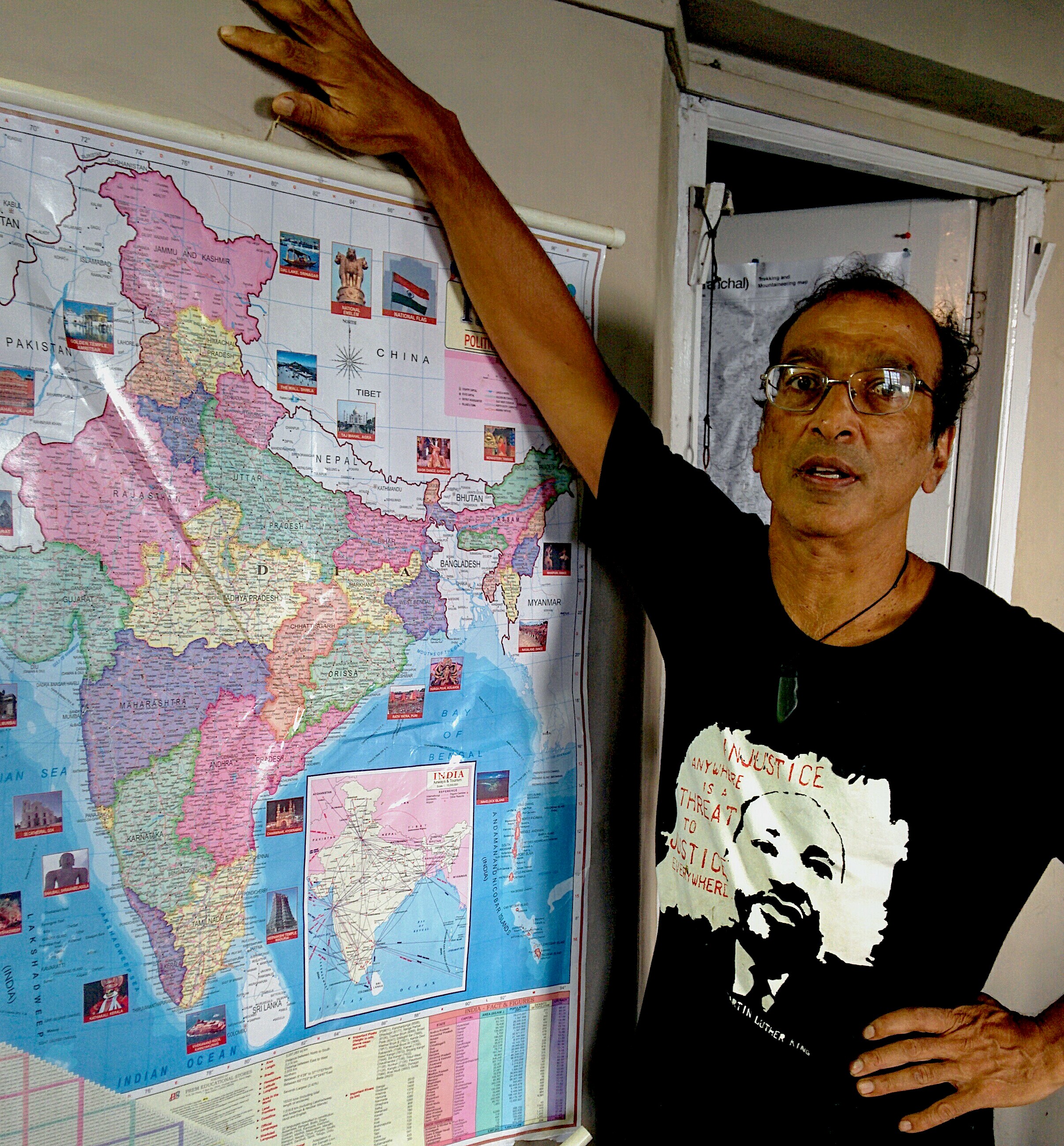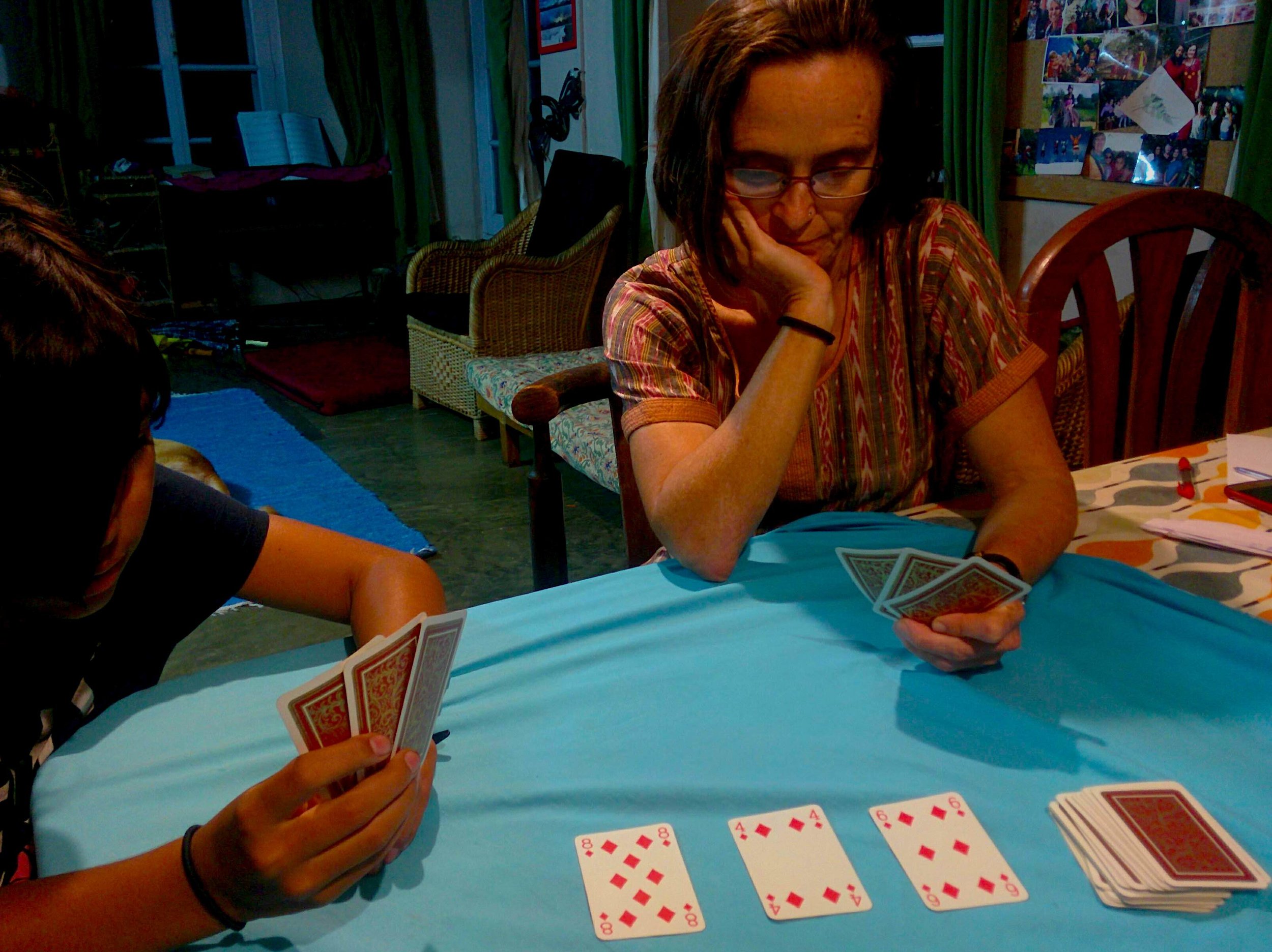This is a post I wrote two months ago before complex life intervened... Apologies to readers expecting blogs about twice a month... regular service has resumed as of today
A classic New Zealand Christmas and New year. My wife Kaaren’s three sisters and their families- twenty of us- in a woolshed in the windy Wairarapa. Days stretched out easily between beaches mountain bikes, frisbees, playing five fingers and birdwatching... all interspesed with barbecues, a little wine, lots of laughter, and a fire roaring in a pot-belly stove keeping the cool southerly at bay.
One afternoon Alister and I were inculcating our sons Brian and Rohan into a New Zealnd rite of passage- the quintessential kiwi summer card game "500". No New Zealnad holiday is complete without a game or three of 500. From games on sunny summer beaches and gale lashed tents teetering on high passes over the years Alister and I have some understanding of the strategy. But what was clear to us was a mystery to our sons:
“Rohan, you didn't need to trump that, we were going to win the trick anyway”
‘Brian, why did you play the 10 of spades? If you'd led a low heart I could have trumped”
“No Brian, I was trying to indicate I had strong spades by my bid so that you could take out the game with "7 No Trumps" ”
Invariably they would ask “But how did you know?” Playing cards is about making decisions with incomplete information. Its a continuous interative process- gathering information as it is revealed and responding with the changing resources one has. This information can be obvious- most people have no trouble rememberingt "the Ace of trumps has been played and therefore the king in my hand is now the highest card". Sometimes the cues might be more subtle- "...my patner played a Queen on the opposition Ace lead- probably that means he now has no diamonds left so if I lead diamonds he can trump". Clues may be very subtle- "Hmmm last trick he discarded an offsuit five, this time he's discarded a ten. That means...." Top bridge and 500 players are making these inferences all the time. Some information can be gathered via methods that verge on cheating: – a shouted bid or a card slammed down may be a way to indicate a strong hand, holding a hand with three fingers exposed versus one finger exposed as a code to show a strong suit.... Whatever, in cards there is always information rippling around. Much like an anthropollogist one has to construct a whole world from a few shards and then respond with what one has based on this incomplete information. Just like running a development project in complexity.
Except cards is a very simplified version of complexity. There are only 52 cards in a pack, all discreet, each with formal rules of behaviour. There are set rules for each game and a single set of values (the scoring system for that game). The game itself is in a fixed environment too. A game of 500 today follows the same rules and with the same cards as games I played ten or twenty years ago. Real world developent is not like that. Every person is different ( we don't fit neatly in suits), rules of behaviour are never fixed- people might evern risk their lives to break rules. In the same space one person might want to conserve tigers, another might want to illegally cut timber and a third might want to clear some, but not all the forest, build a hotel lined with tropical hardwood and market it as an Eco-tourism lodge. And of course the world we play our development games in is dynamic- the climate changes, so does population deinsity, the pirce of oil, international borders, social norms.... In cards a queen of spades always behaves as a queen of spades. In development a radical left wing social activist might become a Neo-liberal businesswoman, or a Nobel peace prize winning politician might turn a blind eye to ethnic cleansing of a religious minority in Myanmar. Life is infinitely more complex than cards.
If we work in any development context the question is how much effort we put into gathering information, how we put all these different types of information together, how to make meaning of it- and ultimately how to act in the face of incomplete information. Just like cards.
The cards were away, Rohan and Brian were throwing frisbees outside and Alister and I sat back. He told me about a business involved in gathering big data and making plans from that. Information again. Later another brother in law, Craig told me about bouncing radio waves off glaciers to measure thickeness and melt rates and work out how to respond to climate change. Informaiton. I thought of an ecology proefesor of mine who said that evolution is about the storage, transmission and flow of information. Gatherring and responding to whatever contextual information a species can get. I wonder if it is valid to say that is true of all development in complexity.











